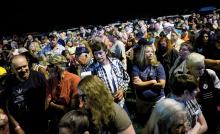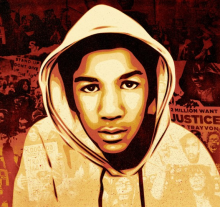divine healing

ACCESS TO HEALTH CARE IS CONTROVERSIAL. Many people in the United States enjoy access to excellent health care, but high premiums and pre-existing conditions have eliminated coverage for others. Some politicians (privileged with extensive health-care coverage) have even made determined efforts to deny health-care access to nearly 30 million people. Their actions are like the response of elite allies and agents of Roman power to Jesus in Matthew’s gospel, when Jesus healed people of various afflictions. What’s true today under American empire was also true under the Roman Empire: Acts of healing have political as well as spiritual ramifications. The attention that Matthew’s gospel gives to Jesus’ healings might point us to some best practices for health care today. In Matthew’s gospel, Jesus is always healing. The gospel alternates summaries of his general healing activity with details of specific healings. Matthew 4 sets up the frame: “Jesus went throughout Galilee ... proclaiming the good news of the kingdom and curing every disease and every sickness among the people. So his fame spread throughout all Syria, and they brought to him all the sick, those who were afflicted with various diseases and pains, demoniacs, epileptics, and paralytics, and he cured them” (23-24). This summary is touched on eight other times in Matthew, surrounded by 14 individual healing scenes: a leper (8:1-4), a paralyzed slave (8:5-13), Peter’s fevered mother-in-law (8:14), two demoniacs (8:28-34), a paralyzed man (9:2-8), a woman with a hemorrhage (9:20-22), a dead girl (9:23-26), two blind men (9:27-31), a deaf man who cannot speak (9:32-34), a man with a withered hand (12:9-14), a demoniac who cannot see or speak (12:22-24), a demon-possessed girl (15:21-28), a “moon-struck” demon-possessed boy (17:14-20), and two blind men (20:29-34). What is the significance of these actions? What do they contribute to the gospel narrative of Jesus as the agent of God’s saving reign/empire?

As we inched our way forward, the four lanes of the highway converged into one lane as we made our way around a terrible accident. We joined the long line of cars that passed the scene of the accident one by one, and we slowed — as did the others — to see what we could of the crash. But the moment we moved past the accident, the highway opened up to us, inviting us to freely and quickly accelerate.
And I began to think that tragedies like these cause us to slow down, and even come to a stop. They cause us to open our eyes for a moment and see that our actions have consequences. But on the other side of these tragedies, we tend to somehow find the freedom to move on, and to move on with strength. The only question is whether or not we will take what we see to heart, and resolve to be better drivers on the other side.
LONDON — Britain's powerful media advertising watchdog has banned a Christian group from claiming on its website and brochures that God's cure-all powers can heal a string of medical ailments.
The Advertising Standards Authority, the independent regulator of advertising in all British media, ruled that the ads generated by the group Healing on the Streets are irresponsible and misleading.
The ASA, whose tight rules are considered among the world's most stringent, cites a leaflet produced by the group from its center in the spa town of Bath, England, claiming that God "can heal you from any sickness."